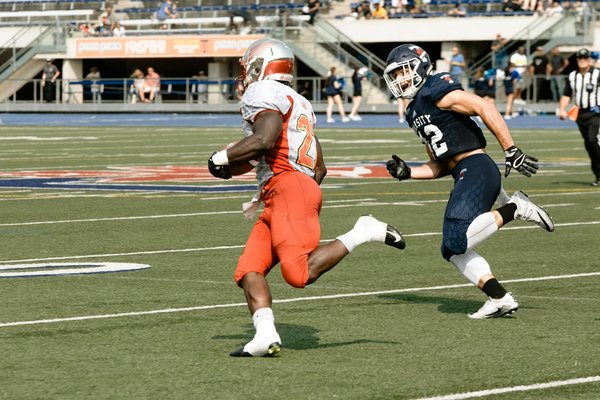Welcome to Cvpiaindependentreview
Your source for Generalist (EN) insights. Explore our articles and guides.
Our topics
Explore all our Generalist (EN) content
Cars, vehicles and driving
BusinessBusiness and economy
CookingRecipes and culinary arts
Finance & real estateFinance, investment and property
HealthHealth, wellness and wellbeing
Home & livingHome, decor and lifestyle
NewsLatest news and current events
PetsPets, animals and companions
SportsSports, fitness and competition
TechnologyTech, gadgets and innovation
Woman / fashionFashion, beauty and lifestyle
Latest articles
Our recent publications

What are the challenges of electric vehicle infrastructure in the UK?
Expanding electric vehicle infrastructure UK faces significant hurdles, primarily due to uneven charging station availab...

What are the implications of autonomous driving on UK road safety?
Understanding how autonomous vehicles influence UK road safety requires a close look at current statistics and the facto...

What role does artificial intelligence play in UK automotive manufacturing?
Artificial intelligence in UK manufacturing is reshaping the automotive industry by enhancing production efficiency and ...

How can UK businesses improve employee engagement and productivity?
Boosting employee engagement in UK businesses requires a focused approach on strategies proven to motivate and retain st...

What are the challenges faced by UK startups in securing funding?
Navigating the UK startup funding challenges requires understanding several critical hurdles. The current economic clima...

What innovative technologies are UK businesses adopting to stay competitive?
The landscape of UK business technology is dynamically evolving, with innovative technologies UK firms adopt playing a v...

Discovering australian and italian wines: a flavorful journey
Discovering Australian and Italian wines opens doors to two fascinating traditions that showcase contrasting philosophie...

How do you make a mouthwatering sticky toffee pudding from scratch?
When preparing sticky toffee pudding, the foundation lies in selecting the right sticky toffee pudding ingredients. Fres...

How do you prepare a hearty Lancashire hotpot?
Understanding the Lancashire hotpot ingredients is vital to recreating this classic traditional British recipe. At its c...

What are the tips for making a rich and hearty beef stew?
Creating a hearty beef stew begins with selecting the right cuts of beef. Opt for tougher, well-marbled cuts such as chu...

What role does Brexit play in the UK's real estate market dynamics?
Since the Brexit referendum, the UK property market experienced notable shifts that illustrate the Brexit effects in rea...

Supercharge your health: discover nature's best supplements
Natural supplements offer a powerful way to bridge nutritional gaps and enhance your daily wellness routine. According t...

What are the key factors affecting child health in the UK?
Child health inequalities in the UK are strongly shaped by poverty impact and household income levels. Children from low...

What are the main challenges facing the UK's healthcare system today?
Funding for the NHS has faced significant constraints in recent years, with the healthcare budget not keeping pace with ...

What are the UK's strategies for reducing childhood obesity?
Understanding the structure behind childhood obesity efforts in the UK...

What Are Cost-Effective Ways to Upgrade Your UK Home's Curb Appeal?
Boosting a home's curb appeal doesn't have to drain your wallet. With budget curb appeal ideas, you can transform your e...

What are the best storage solutions for UK kitchens?
Finding the best storage solutions in UK kitchens is often a challenge due to the varied and sometimes limited space. Ma...

What are the essential elements for a modern UK home office?
Creating a space that's both stylish and functional...

Discover the top young rugby stars in the uk under 20
The UK rugby scene is experiencing a talent revolution with exceptional players under 20 making their mark. According to...

Unlock your potential: speak arabic fluently with takallam!
Speaking Arabic fluently transforms careers and personal connections in today's globalized world. With over 422 million ...

Unveiling the allure of the pink phone: your guide to fun interactions
Pink smartphones have transformed from niche novelties to mainstream must-haves, with market research showing a 40% incr...

How do UK weather conditions affect pet care?
The UK weather effects on pets are significant due to the country's variety of conditions, from persistent rain to cold ...

What are the top tips for pet-friendly home design in the UK?
Creating durable and safe environments...

What are the UK pet microchipping regulations?
Understanding pet microchipping law UK is essential for all pet owners. The core legal requirements mandate that dogs mu...

How is sustainability being integrated into UK sports events?
Sustainability in UK sports events has gained significant traction, reflecting a shift towards eco-friendly sports initi...

What innovations are enhancing fan experiences at UK sports events?
Fans in the UK are no longer content with just watching the game; their demand for an immersive fan experience UK has gr...

What strategies are used to enhance performance in UK sports?
In the UK, strategies for sports performance consistently integrate cutting-edge sports science, innovative technology, ...

How is UK technology enhancing cybersecurity measures?
Recent UK cybersecurity innovations highlight the country's commitment to strengthening digital defenses. The UK has pro...

How is UK technology transforming healthcare services?
Exploring how innovation transforms patient care and service delivery...

Maximize your campaigns with captain verify's data solutions
Poor data quality continues to plague marketing campaigns, with businesses losing an average of $15 million annually due...
